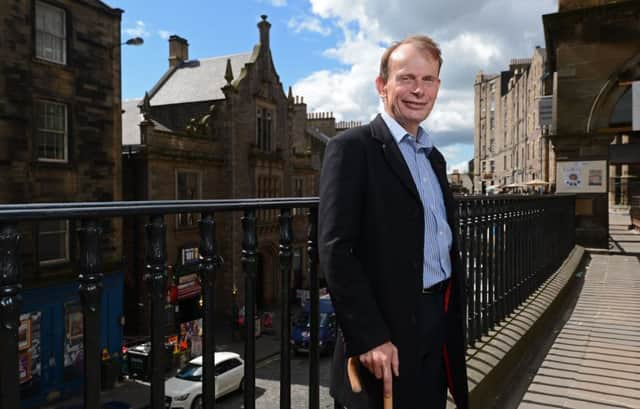Politicians brought to book at brainy Borders Book Festival


Take politics. At this year’s Borders Book Festival, you could have heard two of the biggest beasts in Scottish politics (Alex Salmond, Gordon Brown) and political journalism (Andrew Marr, Jim Naughtie). If you went to all of their events – as I did – unexpected links start to spark across your synapses. Your political understanding grows, deepens; you latch onto the details that count. You catch glimpses of what failure means, little insights into what to look out for in the future.
Of course, even the experts can get things wrong. According to Andrew Marr, David Cameron and his entourage (although not, apparently, the ultra-wily George Osborne) were, on general election day, convinced that they were going to lose: the 10pm exit poll produced a turnaround from quiet despair to jubilation such as he had never seen. For Alex Salmond, the switch of emotions on the day after the referendum went in precisely the opposite direction. To hear him talk in detail about the drama of that long night was to realise the suddenness and brutality of politics. But again, brutality can cut two ways, as Marr made plain when revealing how an uncomfortable interview with Salmond was followed by him being told (by an SNP spokesman) that it would have “consequences”.
Advertisement
Hide AdAdvertisement
Hide AdOn the last election, he admitted, political journalists had completely failed their public. Because they overestimated Ed Miliband’s chances of winning, he was interrogated less robustly than he should have been, and the photos used of him started to become more flattering. Because they underestimated David Cameron’s chances, he, too, wasn’t properly grilled, about precisely where those £12 billion spending cuts were going to fall. Only if he had listened to what people in the street were actually telling him – anecdotal evidence, which political journalists always distrust – would he have actually called the election right. And yet on that score, yet again, we can flick back to Salmond’s event and recall his own story of how Nicola Sturgeon phoned him on general election day. She was worried, he said, because when she cast her vote in Govan, two other voters she’d seen there hadn’t looked her in the eye. He was able to reassure her that wider political forces were at work: sometimes anecdotal observation counts for nothing at all.
A good book festival must be capable of producing such links, but it must also be a mix of the reliable and the unexpected. You’d rightly guess, for example, that Jim Naughtie was effortlessly eloquent, or Alexander McCall Smith was charming and witty, and John Lister-Kaye was entirely engrossing in talking about wildlife: they’re all practised, reliable, and they don’t disappoint. But would you have realised John Bercow, speaker of the House of Commons, was such a mimic (even Rory Bremner would be hard pushed to improve on his impression of Michael Howard and William Hague)? Would you have guessed that Alex Norton was such a risqué raconteur? Or would you ever have imagined you could be riveted (sorry) by a talk on shipbuilding production timetables?
To be fair, James Holland’s talk was about a lot more than that, even though the rate at which Americans could build Liberty ships did indeed play an important role in us winning the Second World War. I’d not heard Holland previously, so I was unprepared for how brilliantly he can expound a revisionist thesis – in this case, how the British have consistently downplayed the importance of our contribution to the Allied victory and exaggerated the power of the Nazi military machine, which was far less mechanised than we assume. Out of a slew of stats, this one has stuck: in the GreatWar, the German war machine relied on 1.5 million; in the Second World War, they relied on 3 million.
For the best unexpected story, though, you have to turn to the winner of this year’s Walter Scott Prize for historical fiction. Usually when literary prizes are awarded in the Spurling family, it’s Hilary who is called to the podium to receive the cheque, for one of her biographies. Her husband John, 79 next month, has written 29 plays that have been performed on the stage, TV or radio, as well as four novels. None of them have even been shortlisted for any award. Yet on Saturday, he won with The Ten Thousand Things, and spoke about it so self-deprecatingly and engagingly that I bought it immediately.
Advertisement
Hide AdAdvertisement
Hide AdThoughts successfully joined up, I did indeed drive home from Melrose a little bit brainier than I arrived. It won’t last, but the memories of another enjoyable book festival will. Soon the railway will come (well, to Tweedbank anyway) and, in the words of Rory Bremner, “Galashiels can arise and be a station again”. Maybe next year, the Borders Book Festival will be even bigger and better than it was this weekend. But right now, even my newly improved brain finds that hard to imagine.